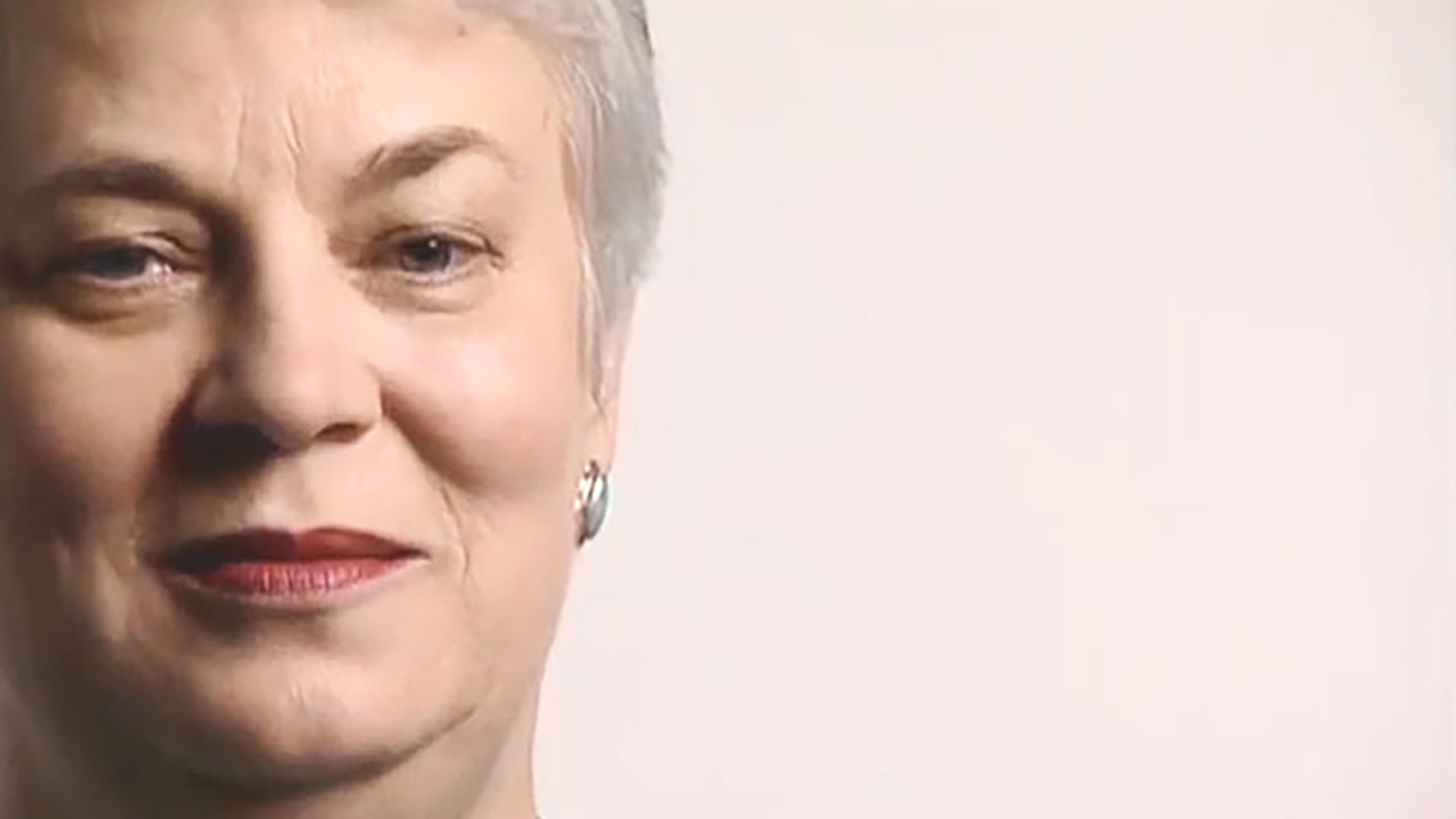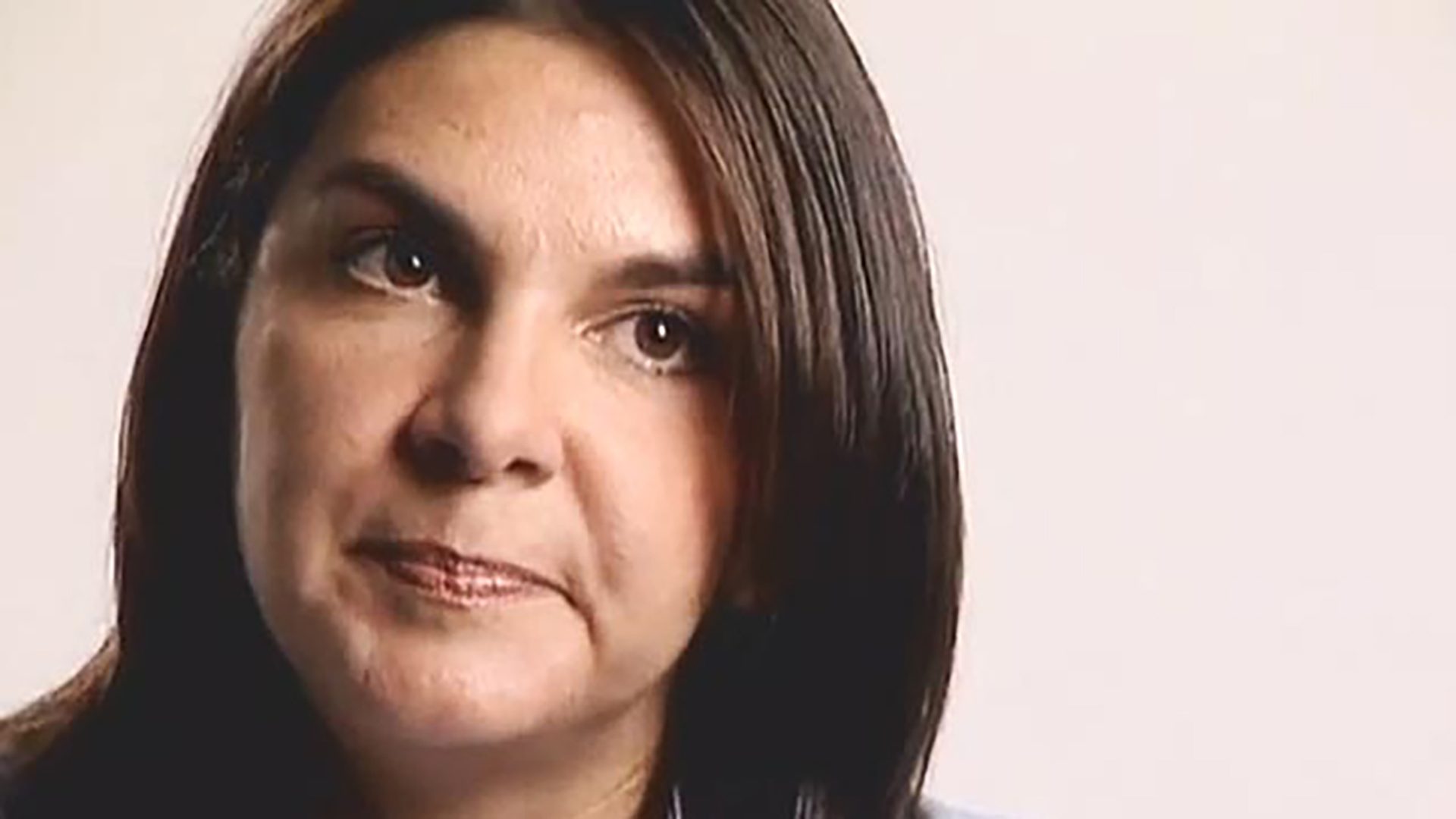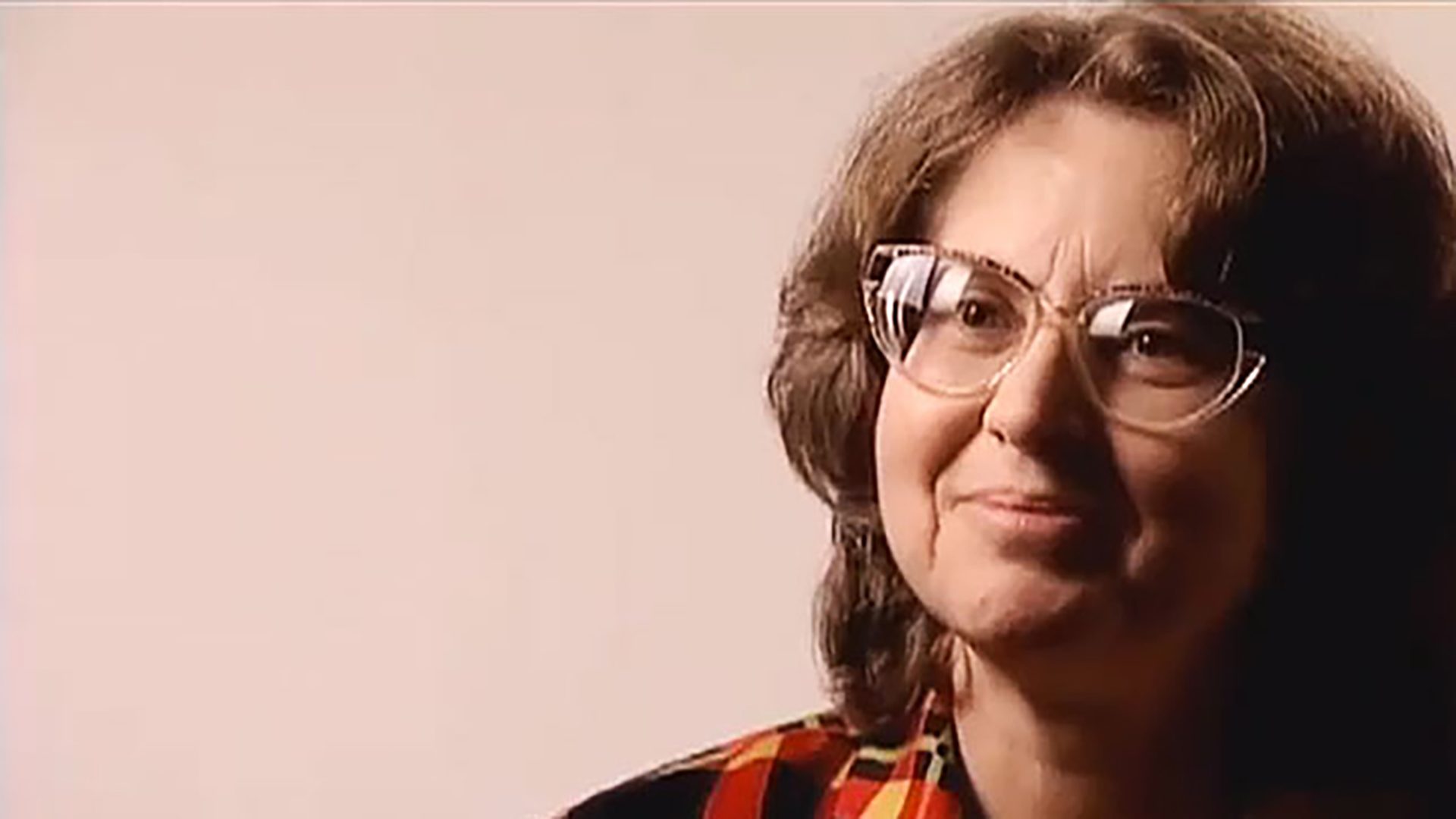Survivor Interview – Ginger S.
Ginger is an ovarian cancer survivor. She talks about meeting other survivors in a support group, setting priorities, and genetic testing.

I became a cancer survivor on January 9, 1997. The surgery and the chemotherapy at first are very difficult. The usual procedure is six rounds or something like that. Then, I opted for three more rounds, so that was nine. The chemo, it’s very tough, but it’s not anything you can’t get through. The first time I had chemo I really didn’t know what to expect. In fact, these are questions you don’t know who to ask, but I thought, Does it hurt going in? You don’t feel it at all. There’s no feeling whatsoever. But then after you’ve had it in for a couple of hours, I felt like I had swallowed oven cleaner. It was the most awful feeling. But even that passed.
You lose your hair and gain weight. I looked like a tomato. I had a good friend who died from ovarian cancer who wrote a book called No More Bad Hair Days, and it was a light book about people on chemotherapy. One of the things she said in there was wearing a wig is like trying to wear a cat on your head, and that’s very true. They’re hot; they itch, you just want to get them off. So as soon as I got enough hair to be presentable, I took it off and wore big earrings, and lots of rouge.
There’s peripheral neuropathy when you feel like you’re numb and you feel like you’re walking on pins and needles. That was a problem, but it eventually goes away. Then there’s chemo brain. It’s very frustrating because you can’t concentrate on anything. It’s hard to read. It’s hard to do anything, any process. That lasted about a year or so, and then it finally went away the same was as the neuropathy.
I decided to have genetic testing. It’s very important to have genetic counseling along with genetic testing because there are a lot of ramifications and extenuating circumstances that go along with the diagnosis of a genetic mutation. I have BRCA 2. I thought I could at least lessen the chances of getting breast cancer, because when you have the genetic mutation of BRCA 2 you’re given a 60 to 80 percent chance of developing breast cancer by age 70. I’m not too far from there so I thought I was using up my time. It was a really big decision for me, but I decided to have a prophylactic double mastectomy with reconstruction. It’s a big decision, and it’s not for everybody. I‘m happy with my decision. It reduced my risk to five percent now of getting breast cancer.
I didn’t have any problem asking my doctor questions. I also think it’s very important for doctors to be very straight with you; not to pull any punches. One of the things you need to understand is that you are a partner with your doctor. You need to help him and tell him what’s wrong. He or she can’t help you unless you speak up about it. In my case I took a course on the cell biology of cancer because I wanted to understand this whole process. I wanted to know what was going on, but not everybody feels that way. Some people, if they have a support person, say a spouse or a husband or a child, they might let them do all the work, but I wanted to know myself.
Once somebody tells you that you have about a 25 percent chance to live two years; it doesn’t take long to get your priorities straight. I mean you figure out real quick what’s really important and what’s not, and frankly, it’s fairly liberating. You think, “I can do whatever I want to. What’s the worst thing that can happen besides dying from ovarian cancer?”
I thought if I wasted all my time worrying, then what time I may have left may not be quality time. I just decided that I would try not to think about it, and I would keep busy and I would do things that were positive and help other people and that was a better way to go. I try to live every day and I won’t use “as if it’s the last” because that’s such a cliche, but at the end of the day I want to be able to say, “I lived and it was a good day.” Nobody knows when they’re going to die. It’s not if, it’s when. So I try to think about it like that. If it comes again, it’s been six and a half years and they’re working on new drugs all the time. I’ll deal with it then. But there’s no point in wasting time worrying about it right now.
I had a very good support system. My husband was absolutely wonderful. His late wife also had ovarian cancer, so he knew a lot about this disease. My husband and his children had only seen someone die with ovarian cancer, so they just assumed I would die, too, and it was just a matter of time. I have a son and a daughter, and I think that atmosphere sort of rubbed off on them and they were just absolutely scared to death. But over time, things got better. They were very supportive. They are very helpful as advocates too now.
If you are the loved one or a caregiver of a survivor, I think the most important thing you can do is treat the survivor with consideration but especially with respect. Nobody wants to be treated differently. We all want to think we can go back and be the same person we were before, and if somebody’s constantly saying, “Oh, you poor thing.” That’s very uncomfortable.
I think it’s important to be in a support group that you can identify with. You can talk about things to other survivors that you can’t talk about to your family. One woman said one time, “I am so tired of smiling.” Every time I don’t smile my husband gets in a panic and my children get in a panic. But I just am so glad to get over here and let my hair—what hair I have left—down, or take my hat off, and just talk with people I can talk to and say, ‘yes, I’m afraid, yes, I’m scared; this is the pits.”
When you get through with all the chemo, you think, “What do I do now?” It’s kind of like waiting for the other shoe to drop. That’s when I got interested in advocacy. At least I was doing something to help the cause, at least I was doing something worthwhile, and I don’t have any documentation that it makes any difference one way or another, but it helped me. That’s how I dealt with it. The first thing I did when I could get up and get out is I bought a book called The Cancer Activist, and I thought, “Well, I’ll march or something. We’re going to do something about this.” You can either be a victim or you can handle this thing, and you have to just figure out how you’re going to do it. Not everybody does it in the same way and there is no right or wrong way. This is what worked for me.
As survivors it’s very important that we share our knowledge with other women. This is such a tough disease and women don’t have any idea about it. It’s very important to educate women about the symptoms of ovarian cancer. The symptoms can be so subtle and they mimic other common diseases. Ovarian Cancer Alliance says awareness is best until there’s a test. Not everybody feels like they can be an advocate, but you can tell your friends, even if you don’t go to a support group or don’t join an advocacy group, you can tell other people. There’s an old adage about if a woman tells a man she gives him some information, if a woman tells a woman, she tells the world.
Once you’ve looked ovarian cancer in the face, you can do anything. I didn’t have that sense of freedom before. Cancer has some good points, and that’s certainly one of them. I think any cancer survivor would tell you that their life is better for having come to this realization. You don’t take anything for granted anymore. We kind of go through life just thinking everything’s going to be fine, but this makes you stop and really appreciate it.
Survivorship means that I am extremely fortunate to be alive, considering that I had advanced stage ovarian cancer. I am just eternally grateful to be here.
I’m Ginger Ackerman-Smith, I’m 64 years old, and I’m an ovarian cancer survivor.

